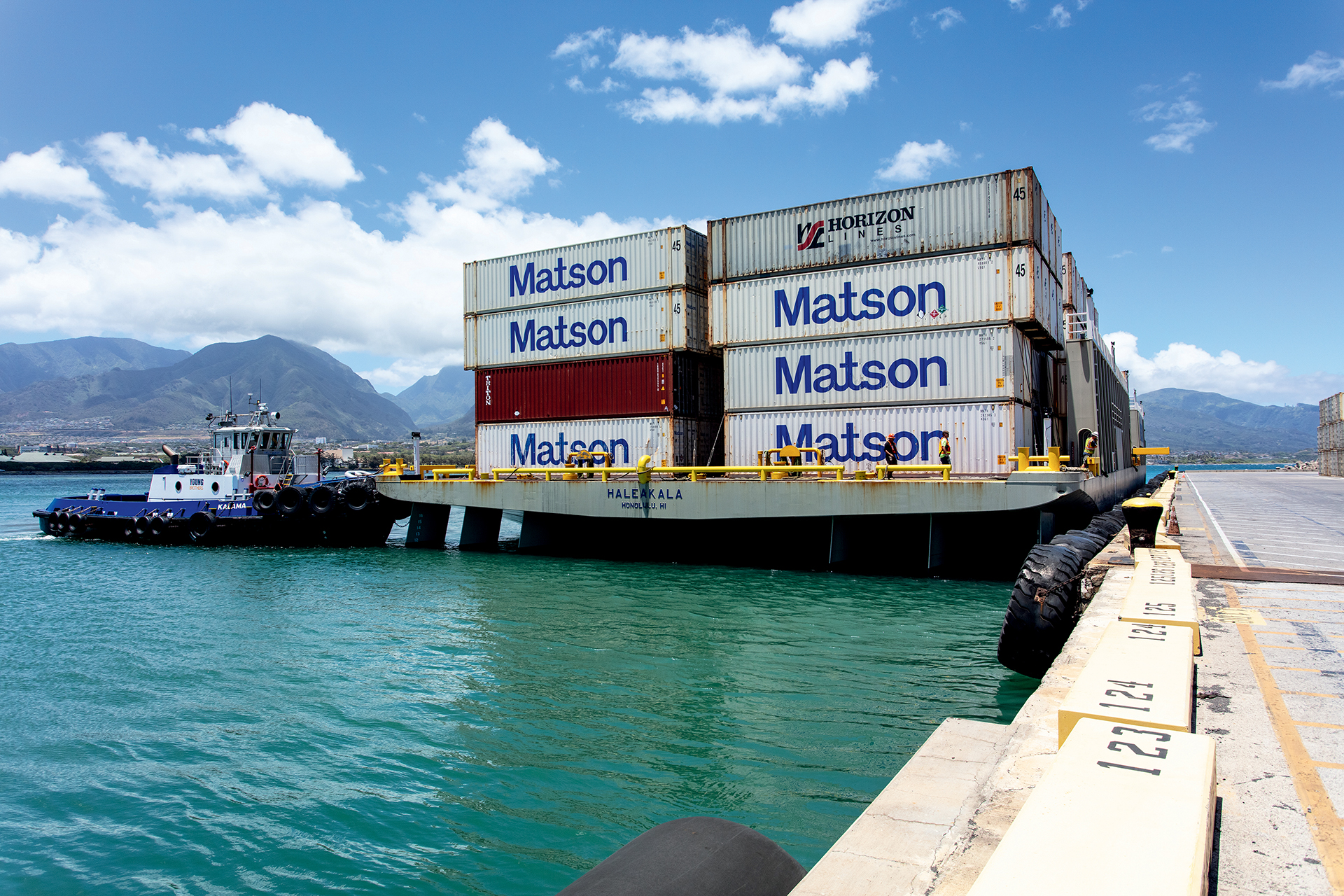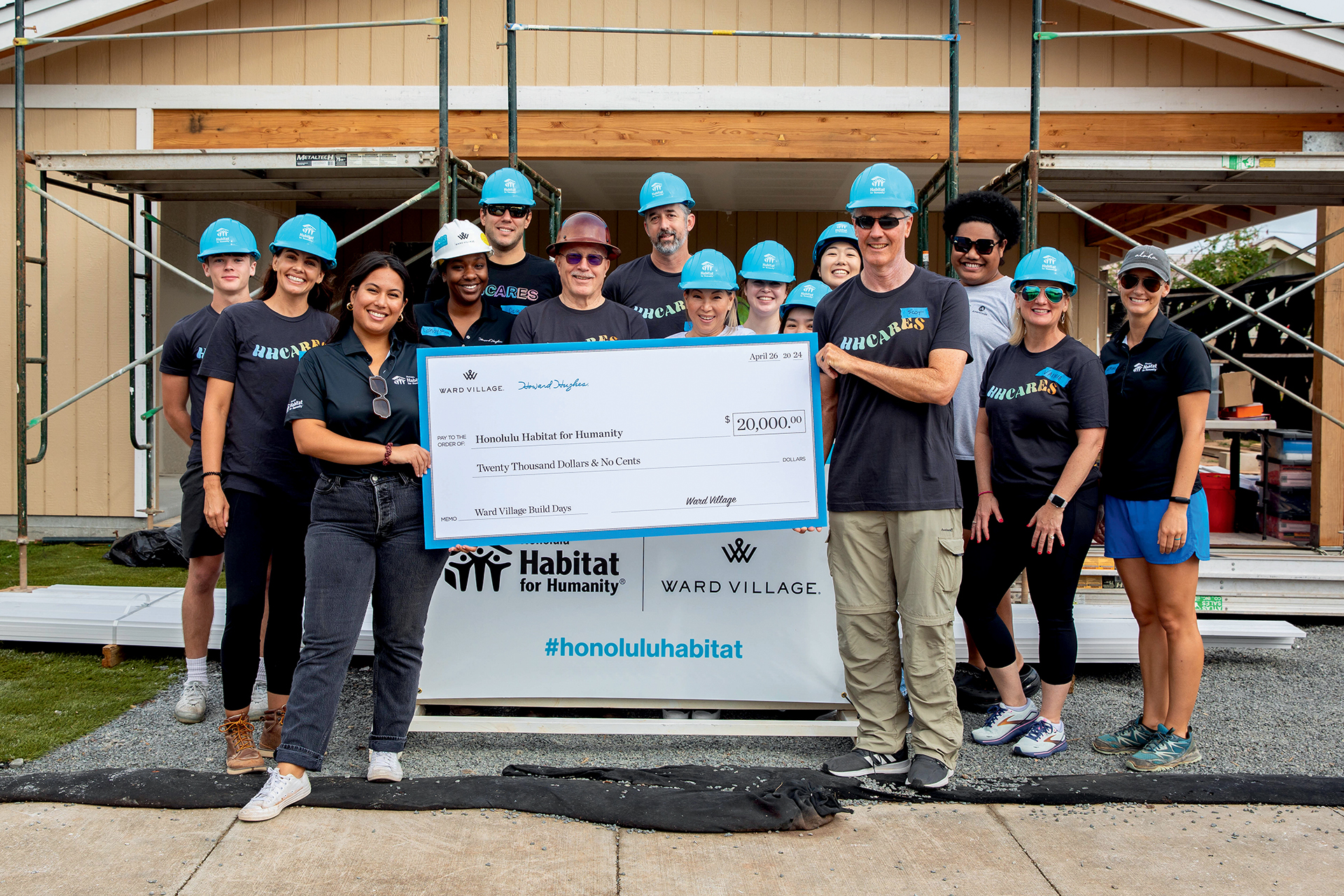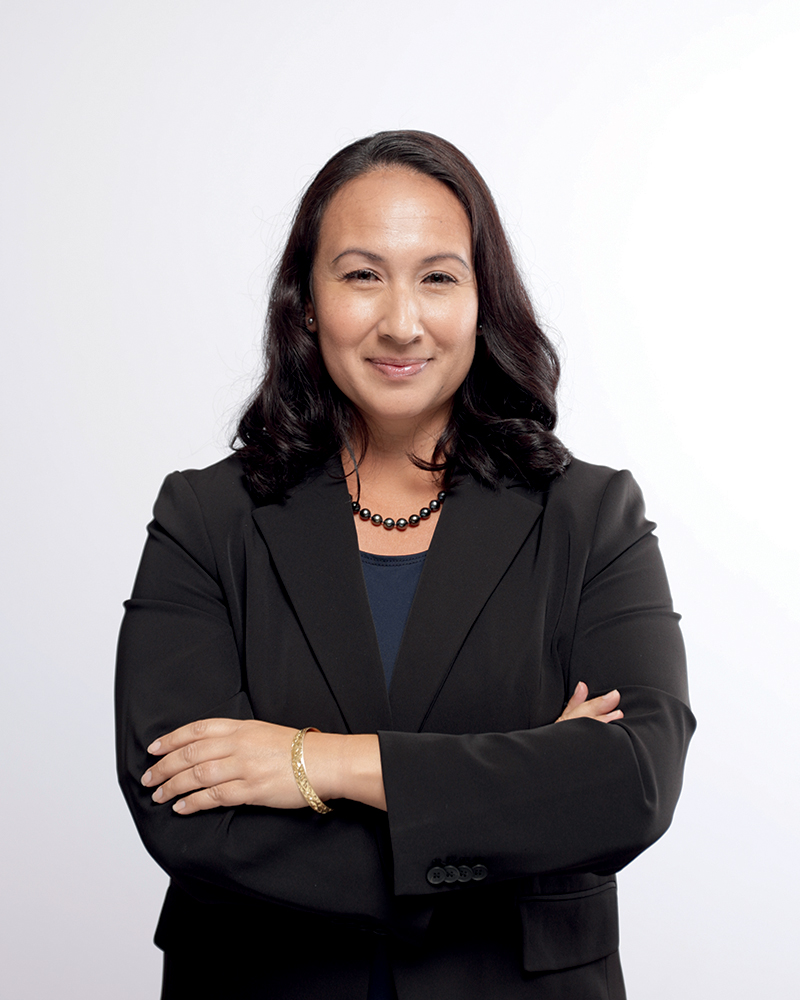
Crissy L. Helm
Project Manager, Henkels & McCoy Inc.
Crissy L. Helm hit a career plateau a decade ago while working at a design-build firm. “[I realized] my career path was determined by my own self-accountability,” recalls Helm, who vowed right then to “quit playing small while expecting big returns.” Fast-forward to the present.
Today, as project manager for Henkels & McCoy Inc., she is passionate about mentoring, hiring and coaching women in the workplace. “If we want equality, women must be willing to jump in the sandbox, work hard, be curious, spend time in the field” and be comfortable in an environment that “takes a toll mentally, physically and emotionally,” she says.
Women and men have different strengths, and the key to success is strong communication and productive work—regardless of gender. Meantime, companies must examine their own practices, including equal compensation for all genders, she stresses.
Gender equality applies at home, too. Helm and her husband, Carlton, both have demanding careers. Domestic chores are split between the two “co-breadwinners” raising two sons, ages 11 and 14.

Danielle Ulmann
Vice President, Surety Bond Manager,
Atlas Insurance Agency
As Atlas’ vice president and surety bond manager, Danielle Ulmann works in three industries that are traditionally male-populated: finance, insurance and construction. “I stand out for my gender as a surety professional—at the agent and managerial level,” Ulmann says.
Her definition of gender equality? The same treatment of men and women on a social, political and economic level; equal pay for similarly qualified workers; the same number of men and women on a jobsite; and equal respect among all workers.
“I don’t think we can measure progress via a goal post,” she says. “Once we stop having the conversation about being there, we know we are.”
Ulmann has had her share of discrimination in the workplace. Rather than dwell on the past, she uses her voice to advocate for change. “Awareness [of issues] has helped, but action is necessary. Educate, promote, share and collaborate,” she advises.
Ulmann is a past president of the National Association of Women in Construction (NAWIC) Hawaii Chapter and remains an active leader.
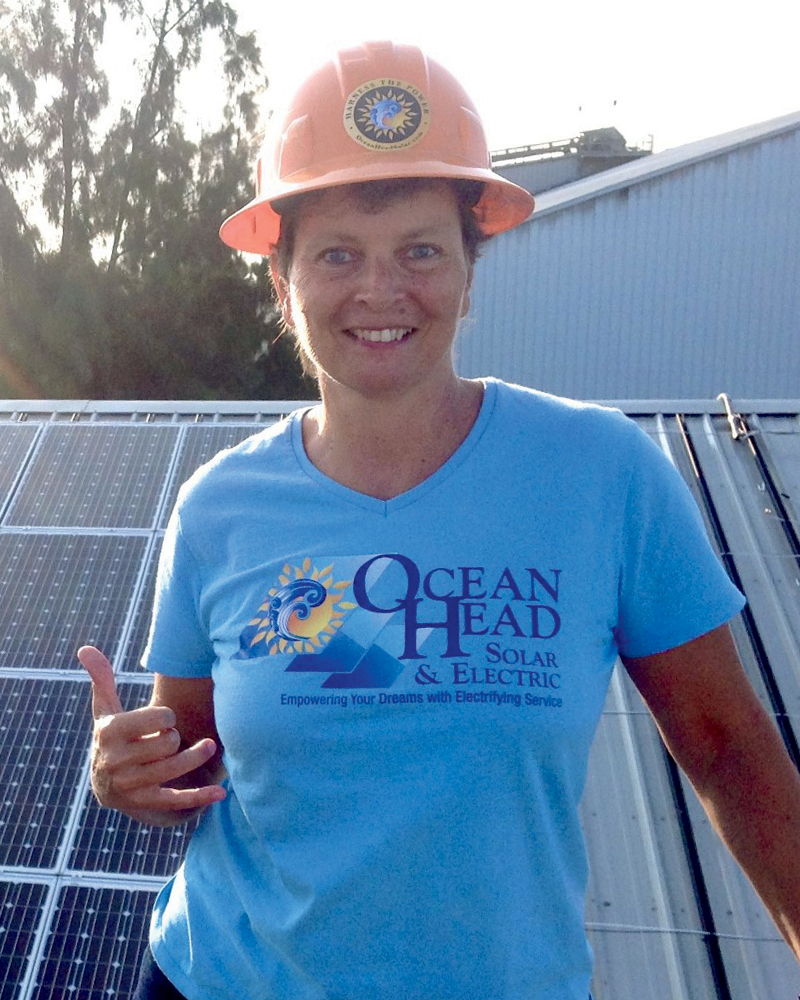
Gail Slawson-Eich
CEO and Co-founder,
OceanHead Solar & Electric
As a women-owned construction company, “you never quite know why you’re not getting your fair share of the work out there,” says Gail Slawson-Eich, who founded OceanHead Solar & Electric with her wife and business partner, Chellie Eich. “Is it the economy, our marketing efforts, or a lack of respect and confidence in our abilities simply because we are women?”
Such fleeting moments of doubt haven’t stopped Slawson-Eich from career growth. Twenty years ago, the partners founded a successful real-estate investment firm that rebranded in 2012 to focus on photovoltaic, electric-vehicle charging, energy efficiency and electrical upgrades for commercial and residential clients.
The co-owners are steadfast about equal pay and encourage their employees to treat one another with respect. “The occasional bad apple lacks respect for females, but those don’t last long,” she says.
Equality is critical for the future workforce’s success. One way to achieve that, says Slawson-Eich, is for more companies to provide sensitivity programs to educate employees about women, minorities and LGBTQ+ members.
“It’s a good start!” she adds.
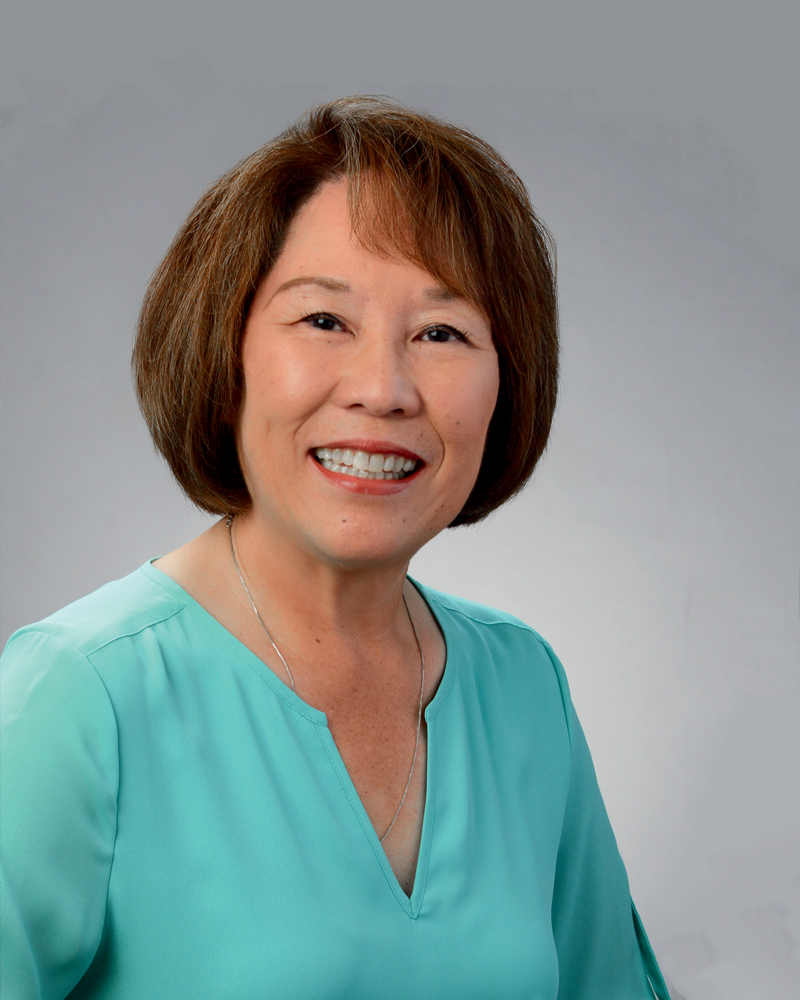
Janet Frederickson
Senior Project Engineer,
Allied Builders System
Janet Frederickson’s construction career began in accounting, then moved into project administration before she became a senior project engineer for Allied Builders System.
“I have been lucky to have had the opportunity to progress and grow in the industry, having had great mentors along the way who helped teach me and give me the tools to thrive,” she says.
It’s not uncommon for multiple women to serve on single-project construction teams, but that is not enough, she says. The industry “is making slow progress” in equalizing the field between men and women, she says. “We aren’t there yet.”
Her ideas for diversifying the workforce: Companies must continue to “attract smart, capable women who will rise, challenge and prove that they can be whatever they want to be,” she says. Ongoing support—such as the mentorship and training opportunities she received—also is necessary. Finally, women shouldn’t be overlooked for job promotions because of their gender.
Frederickson’s husband also is in construction; they have grown children who live on the Mainland.
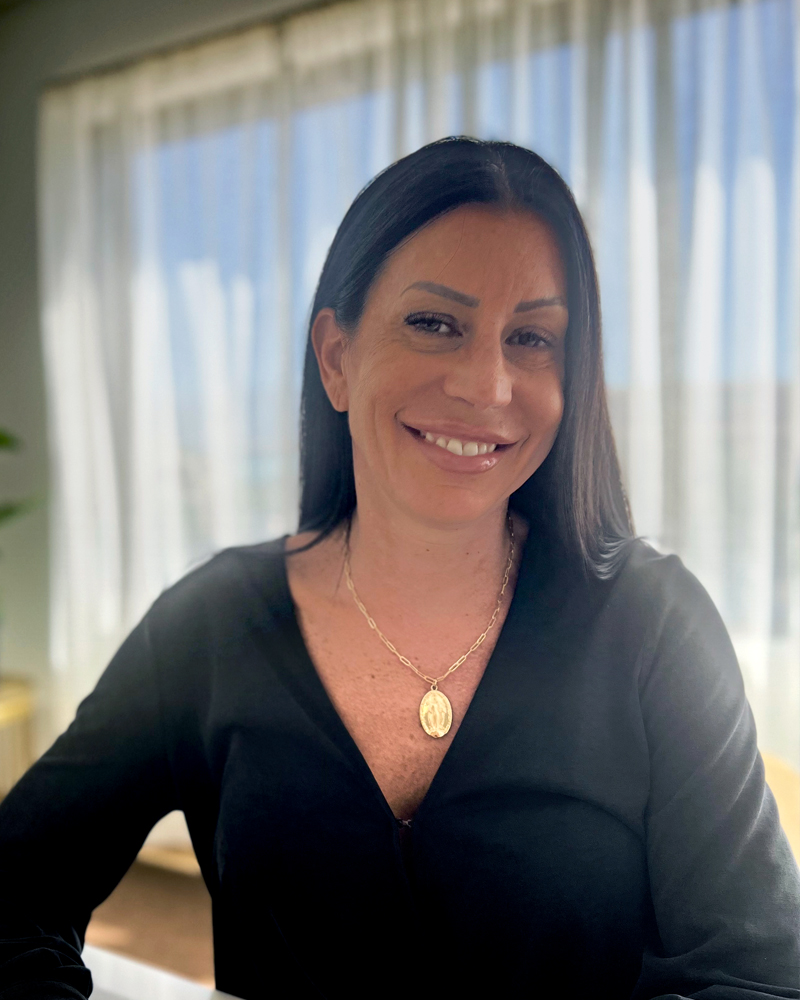
Jennifer Girard
Project Analyst, Swinerton Builders
Five years ago, Jennifer Girard uprooted her retail career in Massachusetts to join her parents who retired on Maui. Today, she’s a project analyst for Swinerton Builders and serves as the newest board member for the Construction Industry of Maui and as co-executive director for Maui Cancer Resources.
“[I left] a fantastic job to move to Hawaii, where I not only had to rebuild my professional network and career, but also learn a new culture,” she says.
Her advice for women? “Know your worth,” she says. “Let’s not put limitations on ourselves. Know the facts, and state them with confidence. This is so powerful and will allow the bridge of ‘equality’ to get stronger and stronger between women and men.”
Altruism also helps bridge gender gaps. “Share knowledge,” she advises.
Sharing is a mantra she follows. “If I can be on the journey of watching someone become a better professional with either the tools or education that I have provided, then I know I have done my job!”
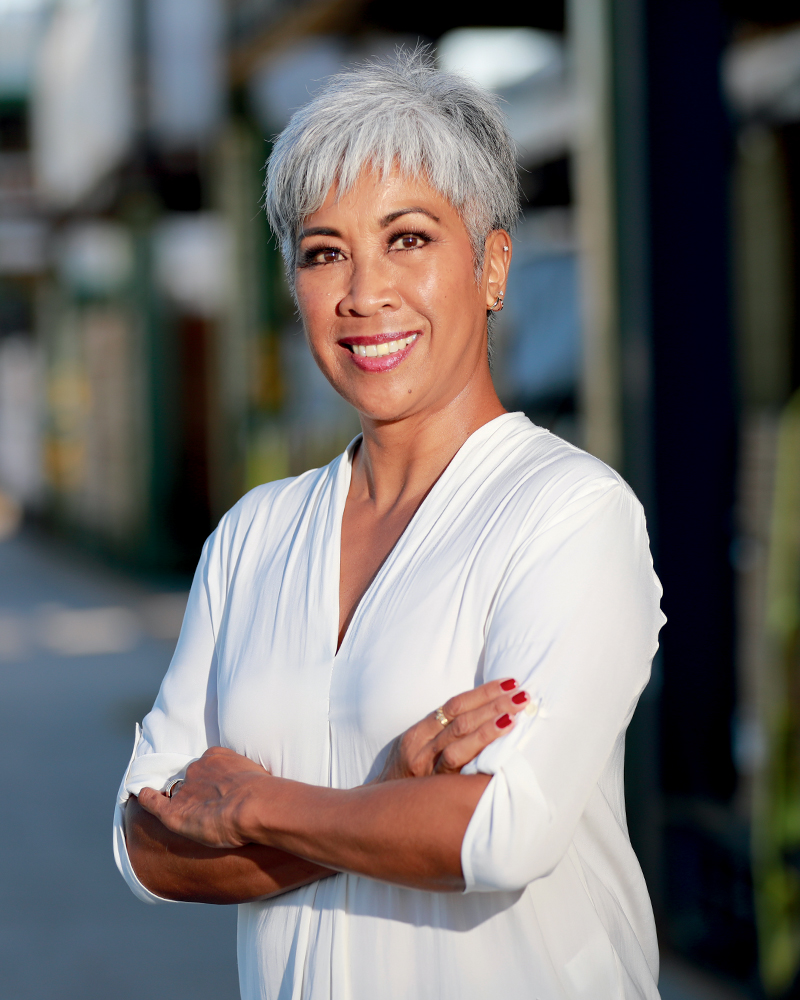
Joan V. Nacino
Business Pricing Analyst, Lynden Inc.
A 30-year veteran of ocean and cargo transportation, Joan V. Nacino has witnessed waves of women enter the field and climb the ranks. Her industry in particular, aka “The Waterfront,” has a higher ratio of women in traditionally male roles, including stevedores, forklift operators, supervisors, managers and “even working on the ships and tugboats,” says Nacino, business pricing analyst for Lynden Inc., parent company of Aloha Marine Lines.
Albeit evidence of progress, more work still is needed to achieve true equality in construction-related workplaces. Her advice for female workers is to “stay the course.” And her reminder for employers: “Continue to hire and promote women to work as machine operators, freight clerks, supervisors, managers and in executive positions.”
Nacino is steadfast about supporting women in the industry. Today, she splits time between her career, husband and an elderly parent who lives on a Neighbor Island.
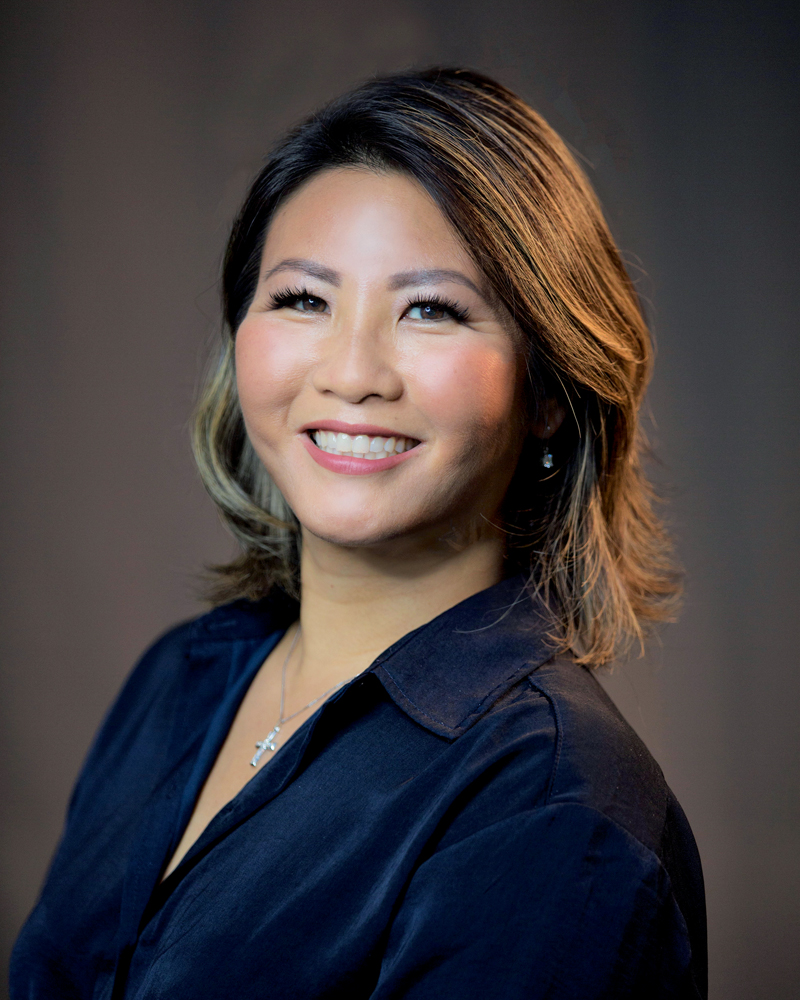
Jodi Watanabe
Assistant Project Manager,
Rosendin Electric Inc.
Jodi Watanabe was the first female to be hired seven years ago in the newly opened Hawaii office of Rosendin Electric, the country’s largest privately owned electrical contractor. Last July, she was promoted to assistant project manager. “I’m grateful to be given the chance to move from administration to the operations side,” she says.
Construction management runs in her family. Watanabe’s husband is a general foreman for an HVAC firm; their oldest child is the only female project manager for a general contractor.
Watanabe shares three lessons, based on challenges in her own life and career. First, women are internally stronger than they realize. Second, women who are relegated to menial tasks can prove others wrong. And third, women can create their own leadership styles by mirroring positive traits of former bosses and not repeating their mistakes. (Watanabe had a former manager who constantly assigned her mundane tasks and excused his own filthy language “because a lady was around.”)
“When deficiencies are recognized, problems can be addressed,” she says.

Joselyn Olinares
Project Engineer, Dowbuilt,
General Contractor
Armed with a college degree in business economics five years ago, Joselyn Olinares embarked on a career in banking—but found little joy. What excited her was construction. With the help of mentors and job training, she’s now a project engineer at Dowbuilt, the sole woman on her specific jobsite on the Big Island and one of three women on her team.
“Every obstacle I encountered helped me to gain the confidence to stand firm in my role and know that I have every right to be there just like everyone else,” she says.
Olinares envisions a future where gender equality in the workplace means, “the feeling of blending in, like we’re not the elephant in the room” or not being mistaken for “the safety lady who comes out to jobsites to point out issues,” she says.
Fortunately, many companies in Hawaii, including Dowbuilt, advocate for women, she says. “With the ever-growing number of women entering construction, we are making a presence that can’t be ignored,” she says.
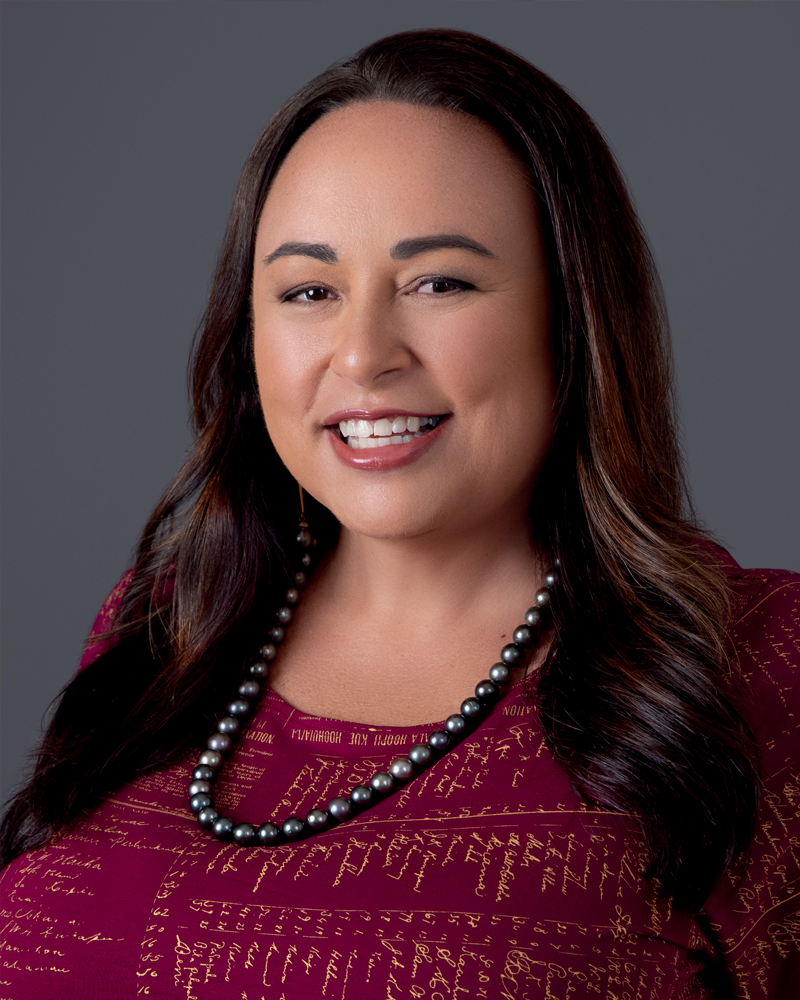
Kuuleialoha Gaisoa
Owner/Vice President, Unlimited Construction Services Inc.
“Why are you the VP and not a superintendent?” a male manager once challenged Kuuleialoha Gaisoa, owner and vice president of Unlimited Construction Services Inc.
Her response: “Do you have any idea what it takes to run a company, or how to read a financial statement?”
Despite nearly 20 years in construction—from estimating and project engineering to IT and finance—Gaisoa still must prove herself by working harder than others. “I share this lesson with other women entering the field,” she adds.
Gaisoa strives for a future where workplace attitudes improve toward women and other minorities. A solution is to start young. “We can raise our children to be kind, understanding and accepting of race, age and sexuality,” says the mom of daughters ages 14, 21 and 29.
Women comprise 33% of Unlimited Construction’s workforce; the national average is 18%. Managers at Unlimited support families, too. When COVID-19 restrictions shut down schools in 2020, Unlimited’s Kauai office hired a teacher and built on-site classrooms for employees’ children.
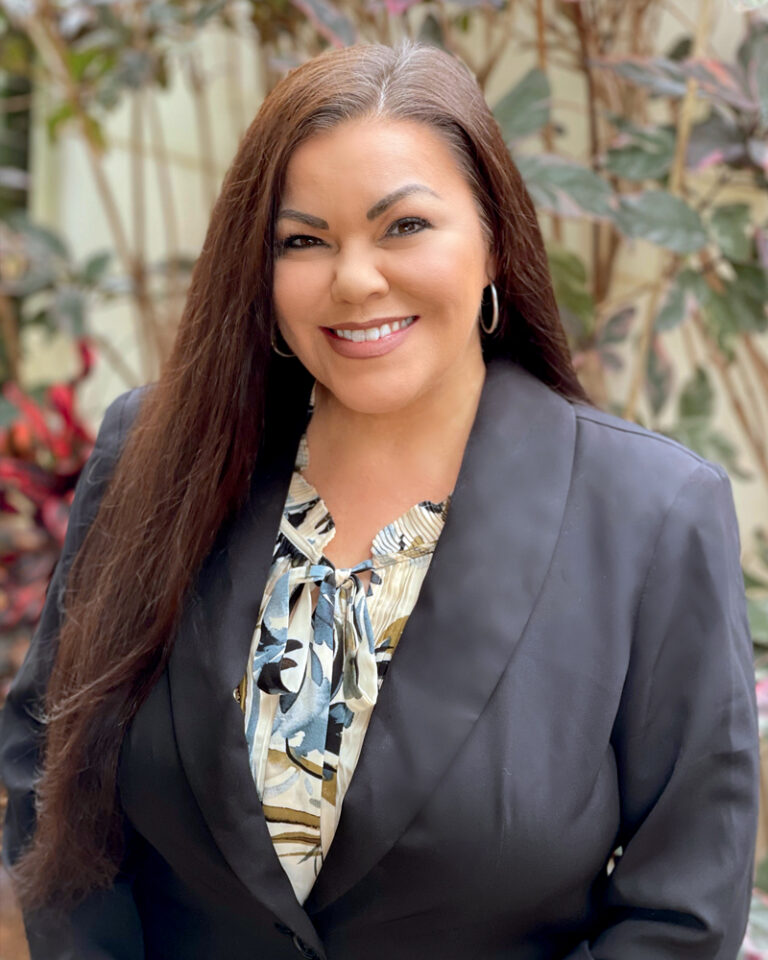
Leslie Simao
President/CEO, C3 Construction Corp.
Discrimination and harassment affect both men and women in the workplace, says Leslie Simao, president and CEO of C3 Construction Corp.
In addition, the construction industry can involve a culture of “joking, poop talking, stuff people say in the dead heat of 80 to 90 degrees” while people work for eight to 10 hours, “but that is not an excuse to allow unwanted behavior.”
If women demand gender equality, they “need to be just as good, if not better, than any other man in the field, and take fair criticism on the job when it is warranted,” she says.
To further break gender barriers, Simao suggests: employers conduct regular pay-equality audits with adjusted wages; support pregnant and nursing women; and recruit more female workers.
“Companies that provide resources for female employees to balance family and work are dear to my heart,” says Simao, a formerly single mom now married with three children, a grandchild and an 82-year-old mother.
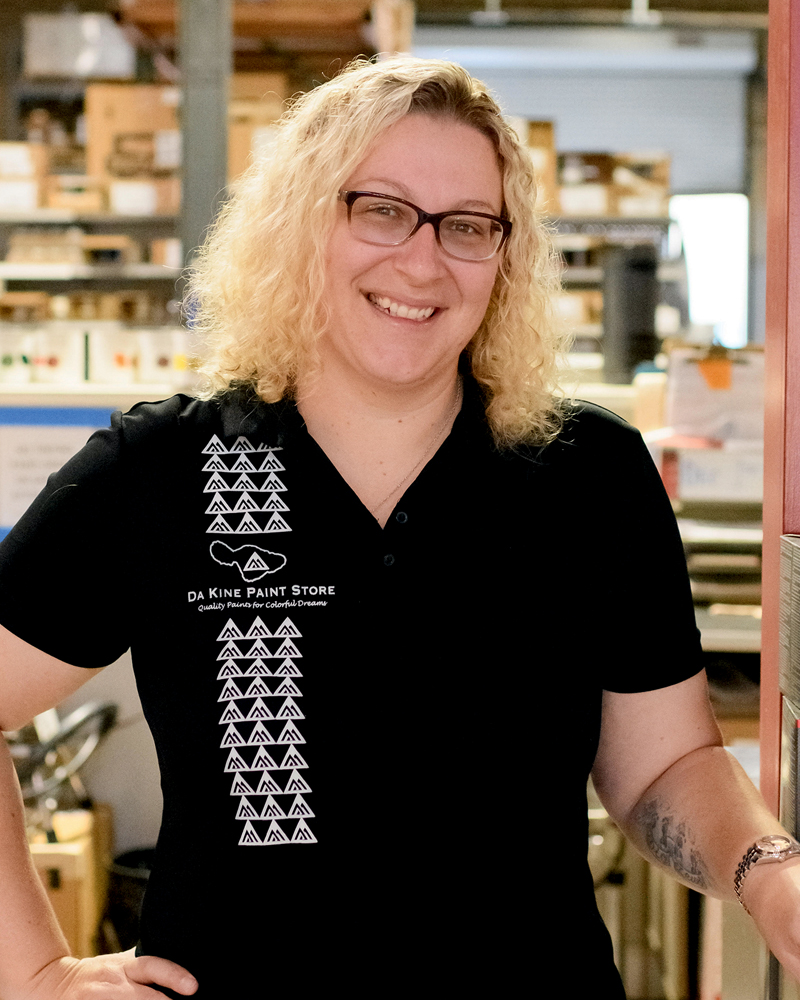
Michelle Heller
Owner,
Da Kine Paints & Da Kine Painters
“I was a woman trying to sell paint to a bunch of good ’ol boys,” recalls Michelle Heller, about the challenges of opening Da Kine Paints, a Benjamin Moore Paints independent store on Maui, in 2015. Profitability at the store took several years, as customers hesitated to invest in Da Kine Paint’s new, higher-priced paint products.
Rather than be discouraged, Heller—a U.S. Navy veteran—joined the Construction Industry of Maui trade council where “extremely strong, hardworking, influential women in construction” helped her “gain the confidence to feel a sense of equality in the construction field.” She’s the council’s 2023 chairperson.
Heller’s grit and industry knowledge stem from her father, Frank, who founded and managed a paint-contracting business, Da Kine Painters, before becoming a full-time grandfather to Heller’s 4-year-old son. “My father was a huge part of my success, but the sales, ordering and daily operations of the store were my responsibility,” she says.
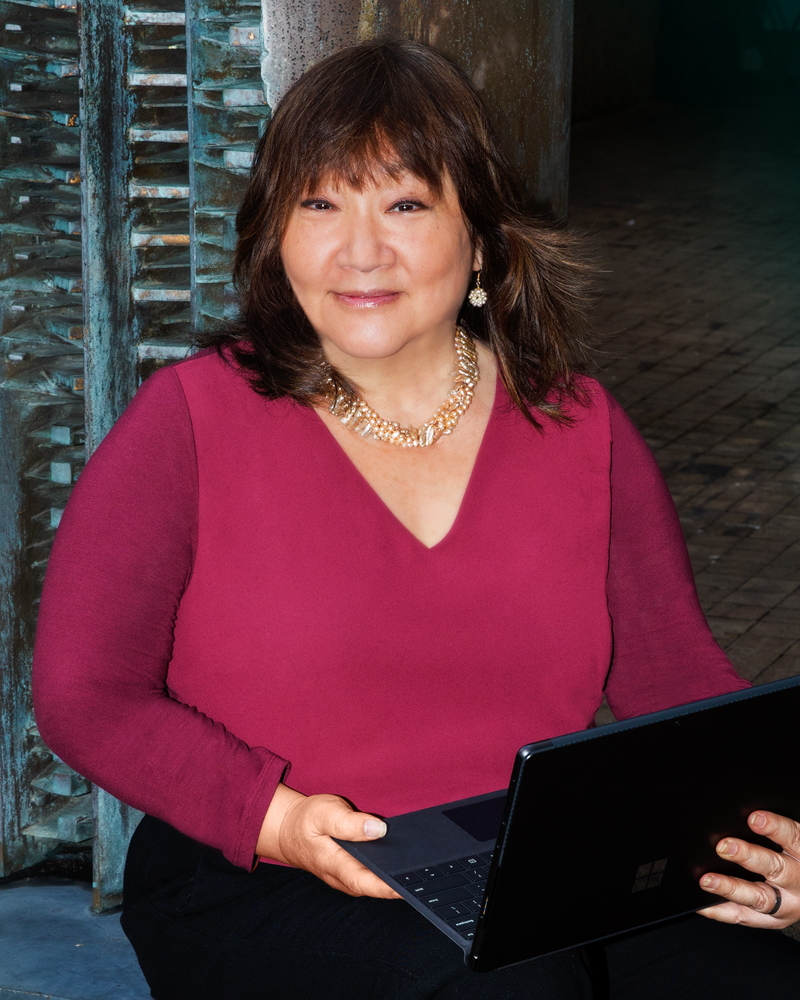
Linda C. Miki
Vice Chair/CEO,
Group 70 International Inc., dba G70
Linda C. Miki made history last November when she became the first female CEO of G70, a half-century-old design firm comprising nearly a hundred architects, interior designers, asset managers and civil engineers.
“My career path was never focused on position or title, but bringing out my best to each project, big or small, making a positive impact on the places and people we touched,” says Miki, who joined G70 over 30 years ago.
Nationally, 23% of architects are women, while 76.7% are men, according to career specialist Zippia. The architecture department at G70 comprises 47% women, while 51% of the firm’s overall employees are women.
What’s changed in the corporate world over the past few decades is employees’ “focus on work-life balance” regardless of gender, Miki says. “We may be able to ‘have it all,’ both a great home life and career opportunities.”
Companies that “provide options for both parents will, in turn, bring more equality between women and men, as more families, especially in Hawaii, need dual incomes, she says. “We need to be creative in envisioning our future, especially for the next generation.”
That shift is inevitable. Employees start families, raise children or care for elderly parents, particularly in Hawaii.
As she rose in her career, Miki had “wonderful parents” to help her raise two daughters, now adults. Her husband, Gregory, who unexpectedly passed away in May 2020, was her biggest cheerleader. “I loved our family time, especially weekends and vacations together,” she recalls.
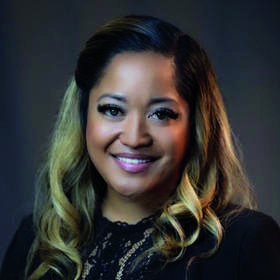
Wahine Build 2023
http://honoluluhabitat.orgBetween March 3 and May 27, more than 200 women volunteers are scheduled to construct a home in Waimanalo as part of Honolulu Habitat for Humanity’s “Wahine Build.” The program encourages women to advocate for affordable housing, while working together to build a house from foundation to finish.
“This will be the first house in [the nonprofit’s] 35-year history built by all-female volunteers, a truly exciting endeavor,” says Alissa Bautista, vice chair for the 2023 Wahine Build Event and project manager, Pacific Region Operations, for Rosendin.
To learn about Honolulu Habitat for Humanity’s “Wahine Build,” visit honoluluhabitat.org.
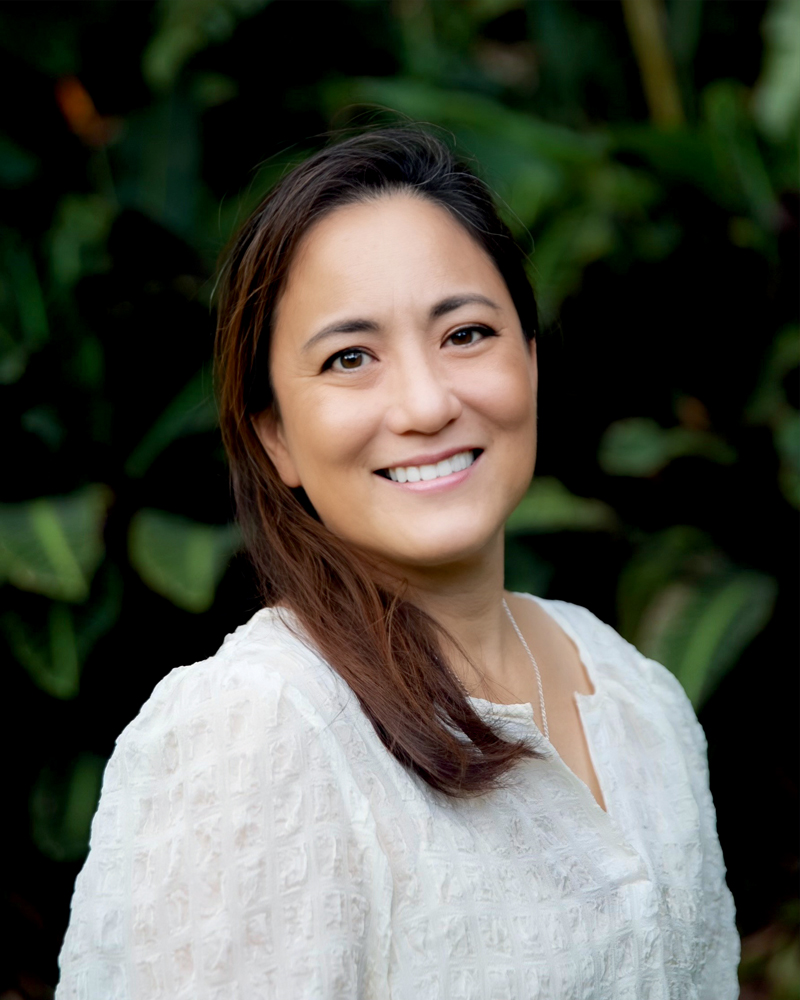
Mardi Miyamoto
Health, Safety, and Environmental (HSE) Director,
Hawaiian Dredging Construction Company Inc. (Hawaiian Dredging)
Mardi Miyamoto—the health, safety and environmental director for Hawaiian Dredging Construction Co. Inc.—has a unique role in that she oversees five divisions: building, commercial, heavy (civil), waterfront and foundation, and power and industrial. Most companies compartmentalize their HSE department, but Miyamoto’s job requires diverse skills and widespread knowledge of the construction industry.
“It takes more effort for women in the construction field to be taken seriously, especially in a profession, such as HSE, where our job is to bring compliance and training,” she says. “Working with various craft workers can be intimidating.”
Her advice to other women: Be self-aware of how you present yourself and communicate. And work “extra-hard to be better prepared and more knowledgeable.” Doing these will earn respect and erase doubts from fellow workers, she says.
When not managing her department, Miyamoto has two college-age children, and she and her sister both care for their aging mother.
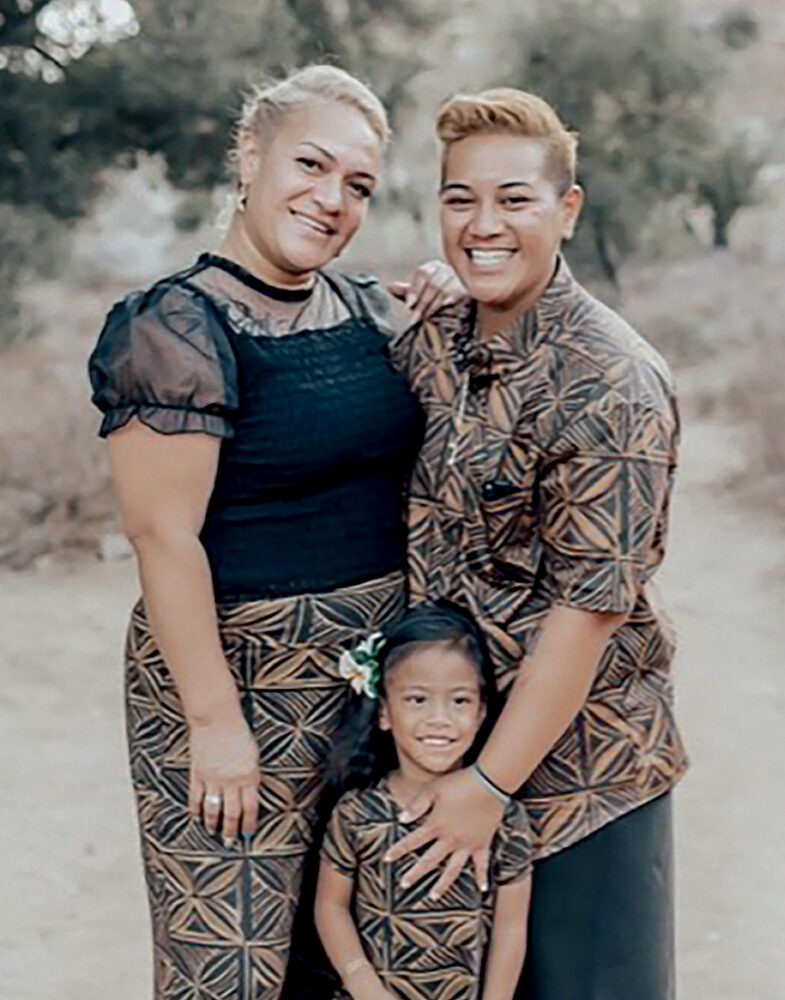
Meki A. Lautalo (right) with girlfriend, Maylila I. Pulu, and their daughter, Patosina PHOTO COURTESY: MEKI A. LAUTALO
Meki A. Lautalo
Mason Apprentice,
STG Casting Plant
When Meki A. Lautalo, a cement finisher, first began working with male colleagues on jobsites, she sometimes felt “inferior because a woman’s physical strengths are limited in comparison to that of a man.” Lautalo is a full-time mason apprentice with STG Casting Plant and attends journeyman classes through the mason’s union Local 630.
Over the years, work experience and classroom training have boosted Lautalo’s confidence. “When I’m on the field, I give a 110% of myself,” she says.
Lautalo’s advice to other women on jobsites? “Strategy, along with having the will to complete a task are just as vital, if not more, than any other characteristic.”
Her goal after graduating from mason school is to become a foreman and secure a lifetime career in construction. “I enjoy working with my hands, which is why cement finishing appeals to me,” she says. Closer to retirement, however, she might pursue a role “not so much on the physical side but perhaps somewhere in the safety bracket of construction—God willing,” she adds.

Mary Pigao de la Torre
Senior Marketing Coordinator,
Hensel Phelps
Corner offices occupied by female senior-level executives. A men-to-women employee ratio of 1:1. And equally paid parental leave for employed moms and dads.
These metrics are possible for the construction industry, says Mary Pigao de la Torre, senior marketing coordinator for Hensel Phelps, but achieving them requires change.
She’d like to see more STEM programs for female students, more male advocates supporting the career growth of future female leaders, and more female executives inspiring their younger, female colleagues.
Hensel Phelps has a women’s network, W-Net, to recruit, develop and retain its female employees. Recently, the company promoted its district’s first female project superintendent and narrowed its female-to-male ratio to 1:6, compared to five years ago when one in every 11 employees was a woman.
“It’s exciting and encouraging for our female employees to see the growth in their career paths,” she says. When de la Torre isn’t rooting for her female colleagues, she spends time with her newlywed husband and their 11-year-old Shih-Tzu Chihuahua.
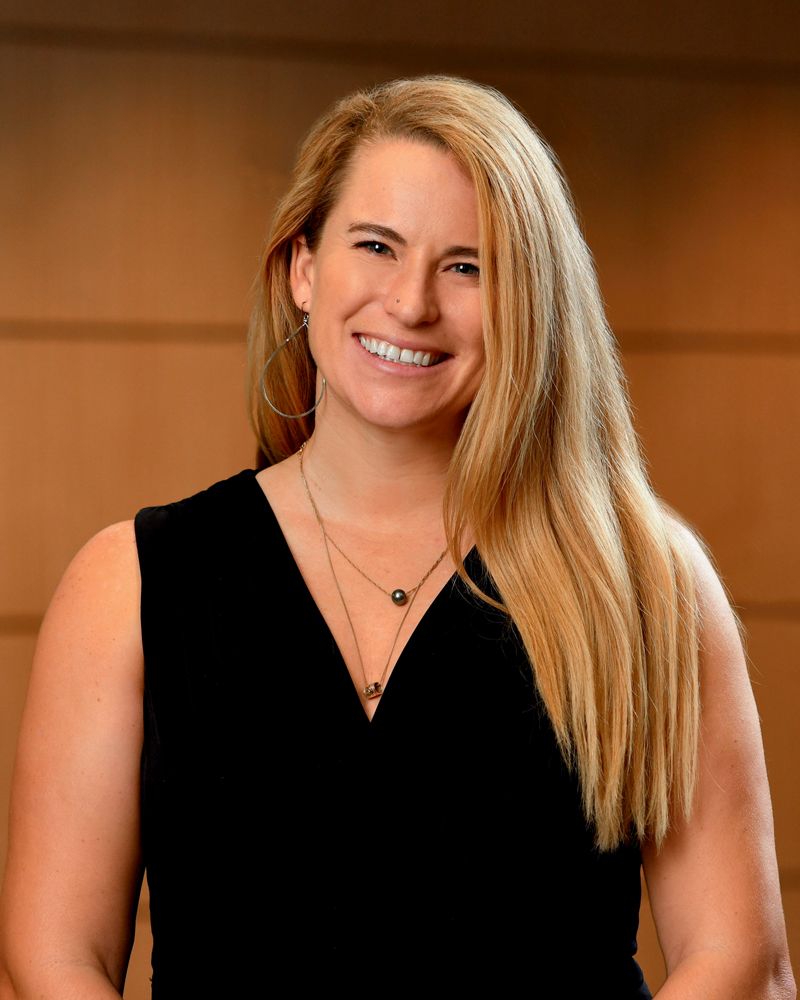
Melissa Humphrey
Project Manager,
Layton Construction Company LLC
Melissa Humphrey’s civil engineering and architecture degrees led to a design career; but construction came calling, instead. “I love the high-pressure, challenging and community-driven industry that is construction,” says Humphrey, a project manager for Layton Construction.
Since joining Layton eight years ago, she has worked on five projects, including a water park in Ewa Beach that, at one point, had more women than men with “trades women working out in the field, and many subcontractor trades led by female managers,” she says.
To build a “collective confidence across the construction industry,” more women need to fill leadership roles. The higher visibility will inspire others to “dream bigger for themselves and their career paths” and prove that women “have the necessary skills, expertise and knowledge to be leaders,” she says. “Our equality is earned, not assumed.”
When she isn’t on jobsites, Humphrey oversees manual-labor tasks in her parents’ home. Dad is a retired Navy veteran; mom volunteers for nonprofits. Her boyfriend, an electrician, tells friends and family that she’s ‘The Boss.’
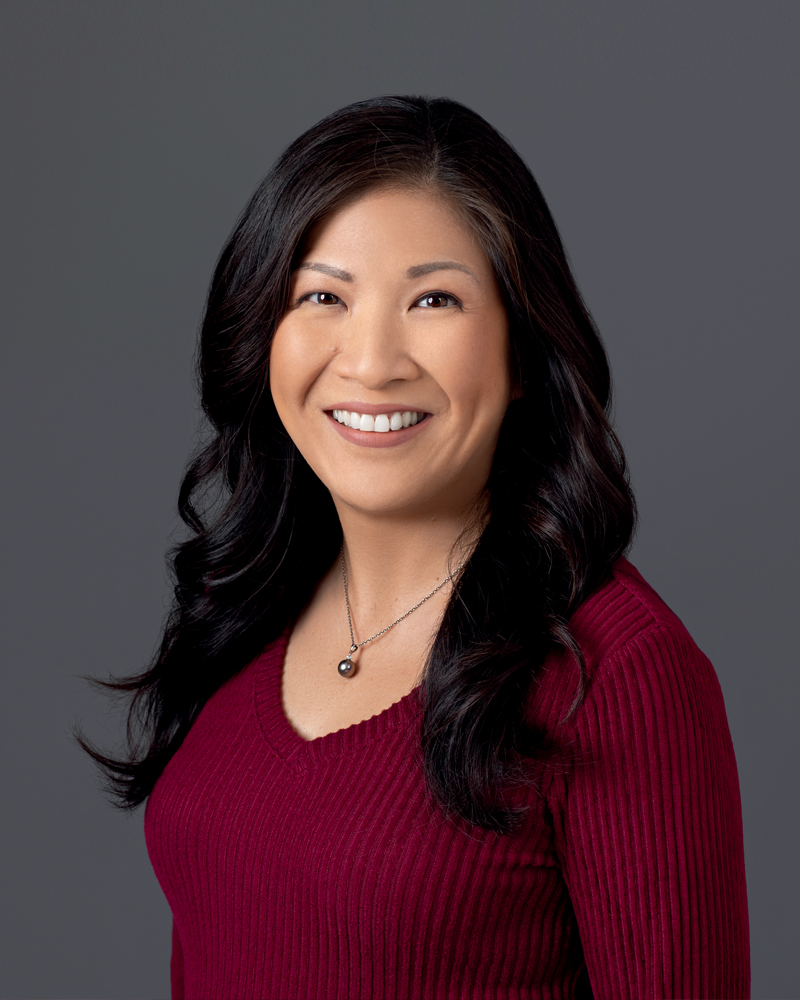
Michelle Nelson
President,
MK Equipment Corp.
On a recent business trip to the U.S. Mainland, a colleague (male) pointed to Michelle Nelson and asked her service manager (another male), “Who’s that?’”
“The look on his face was priceless when he realized I was the boss,” recalls Nelson, president of MK Equipment Corp.
She wasn’t always the boss. After 20 years in planning and engineering, Nelson took over MK Equipment from her father who founded the company in 1973. Nelson’s dozen employees (eight men, four women) aka “TeaMK,” provide general contractors with rental-equipment goods and services.
“It used to be that as a woman, an Asian woman on top of that, I had to work extra hard to prove myself; still, I was treated lesser,” she says. Now, “equality lies in how we respect one another professionally, because women are treated as unique individuals.”
She’s grateful for the attitudinal shift—as a mom raising three girls, ages 9, 11 and 12. Nelson’s husband also works for MK. “He’s supervised by my managers, not me. It works out well!”
8 Stories From Women on the Front Lines
(BIH withheld names to protect identities.)
1 “To gain entry at one project [during the COVID-19 shelter-in-place mandate], we carried special letters to go through a guarded checkpoint. When I showed up to the guard shack one morning, I was denied entry. The guard accused me of lying and wanting to get out of the house, because there was no way a woman was actually working in construction. I showed him my hard hat in the front seat, my steel-toed boots—and still he didn’t believe me. It took me handing him my business card that had the words ‘Project Manager’ written on it for him to finally let me through.”
2 “I saw women who wanted to succeed in male-dominated fields so badly that they were willing to ‘compromise their values,’ as it was the only way to get there. That was NOT fair. But it was a long time ago. Although some were lost along the way, I believe that they made these sacrifices to get to positions where they could open doors for future women to end gender discrimination.”
3 “Although I managed more accounts and generated a [higher] level of revenue than my teammates—who were all male—I was marginalized and not included in a trip to Alaska, where account executives invited our good customers. In fact, another account executive was instructed by our director of sales to invite one of my customers without my knowledge. This customer called me after receiving the invitation to ask me why I wasn’t the one who extended the invitation. This is how I learned about the situation.”
4 “As with other women in this field, I have been subjected to inappropriate comments and unwanted attention. Recently, I had a whole crew just stare at me! When I asked their supervisor about it, he responded that they had never seen a female boss in construction. This has to change. We need to make this commonplace.”
5 “In the year I became a project engineer at my previous company [it took me three years], another male co-worker had started working there. He was similar to me, and he also did not go to school for construction. The company immediately hired him as a project engineer. What took me three years to earn, was given to him in a heartbeat. This experience discouraged me, and I began to question if I belonged in the industry. I had worked so hard to work my way up to project engineer, and the same title that I worked for was just given away. Looking back, I realized that jumping through those hoops only made me a more well-rounded project engineer.”
6 “Before I got into the construction industry, my fiancée at the time (now an ex) who was in the industry already, told me I couldn’t handle being in construction because guys aren’t going to talk nice to me, etc. I didn’t listen to him and got a job in the office of a refrigeration service/contracting company about 10 years ago and have been in the industry ever since.”
7 “At my first job, one of the male executives thought it would be entertaining to post an inappropriate picture with my headshot in the employee break room. I reported it to HR and had a meeting with them that same week. I was blindsided to learn that the meeting was not an investigation of the incident, but rather redirected at my job performance. Essentially, I was being given an ultimatum to pursue the harassment claim or lose my job. The HR managers laying this out for me were both women. During a most vulnerable moment, I experienced gender discrimination, not by men in a male-dominated industry, but by women. I was told, ‘You are expendable. It’ll be easy finding another girl to replace you.’ I didn’t pursue it further, and those words have stuck with me ever since. I share this with full transparency to acknowledge that inequality is sometimes self-inflicted. Women allow it (such as I did), and women do it to each other. It took several years and additional occurrences for me to shift my thinking.”
8 “One project had a commissioning agent who, every time he saw me, would ask me out on a date. He would rarely ever ask me questions about the project or the work I was doing, only why I would never agree to go out with him. This went on for weeks at a time. It got to the point that my teammates could never leave me alone in a room with him—for which I’m grateful that they would look out for me in that way.”


